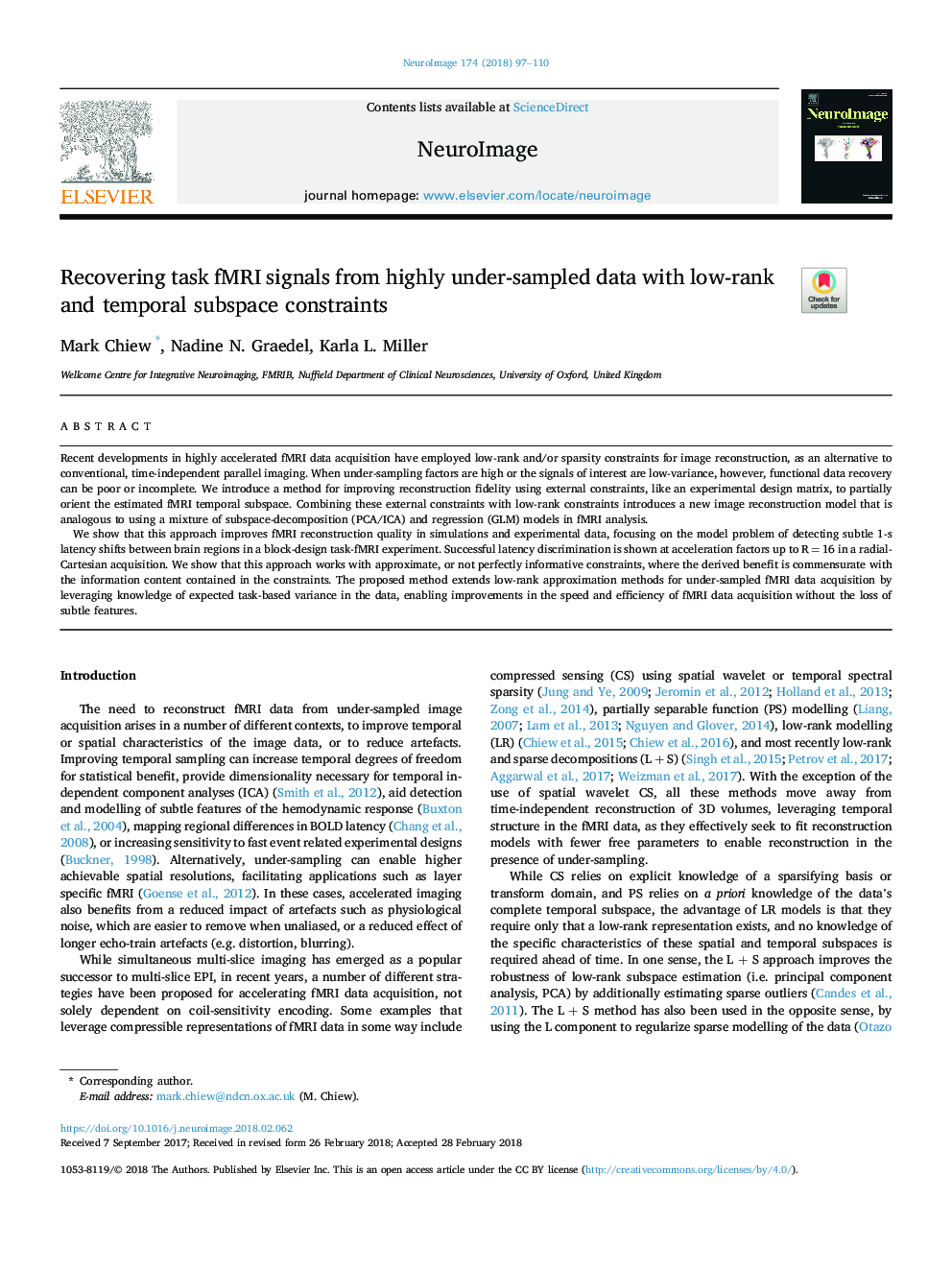| Article ID | Journal | Published Year | Pages | File Type |
|---|---|---|---|---|
| 8686905 | NeuroImage | 2018 | 14 Pages |
Abstract
We show that this approach improves fMRI reconstruction quality in simulations and experimental data, focusing on the model problem of detecting subtle 1-s latency shifts between brain regions in a block-design task-fMRI experiment. Successful latency discrimination is shown at acceleration factors up to Râ¯=â¯16 in a radial-Cartesian acquisition. We show that this approach works with approximate, or not perfectly informative constraints, where the derived benefit is commensurate with the information content contained in the constraints. The proposed method extends low-rank approximation methods for under-sampled fMRI data acquisition by leveraging knowledge of expected task-based variance in the data, enabling improvements in the speed and efficiency of fMRI data acquisition without the loss of subtle features.
Related Topics
Life Sciences
Neuroscience
Cognitive Neuroscience
Authors
Mark Chiew, Nadine N. Graedel, Karla L. Miller,
